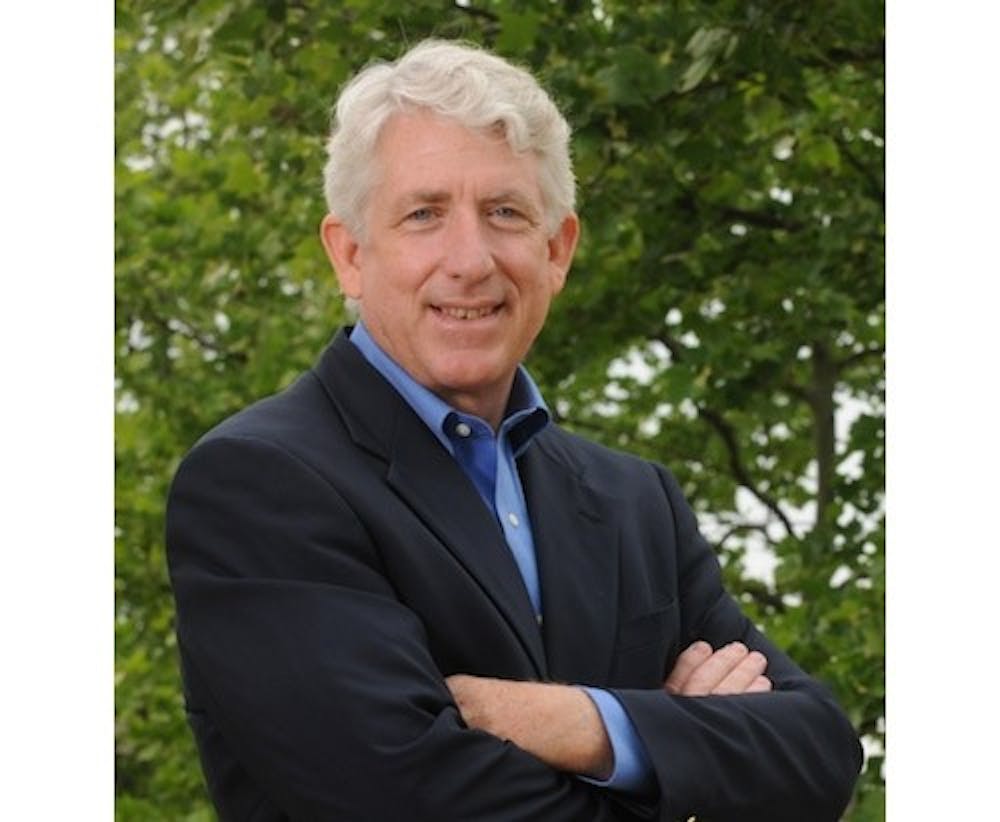The Governor’s Task Force on Combating Campus Sexual Violence met for the first time Thursday in Richmond to discuss ways to prevent and respond to sexual violence on college campuses.
Gov. Terry McAuliffe signed an executive order in August to establish the task force in collaboration with Attorney General Mark Herring, who will chair the 30-member group. The task force includes campus administrators, advocates, law enforcement, higher education attorneys and health professionals, including Dean of Students Allen Groves and University alumna Emily Renda, a project coordinator in the Office of Student Affairs.
“Of all the worries parents have about their children’s education, the fear of violence, victimization, or injustice after the fact, should not be among them,” Herring said at the meeting. Herring’s daughter attends the University.
“I worry, just like every other parent worries, about whether my children are safe,” he said. “[We must] approach this issue with the urgency and dedication it demands.”
As colleges work to address sexual violence, Herring said, “inaction at the state level cannot continue.”
At the meeting, members were divided into three subcommittees: prevention, response and law enforcement. The subcommittees will meet monthly, while the task force will meet quarterly as a group and hear reports back from the subcommittees.
Groves will serve on the response subcommittee, which aims to ensure reports of sexual violence are met with prompt “survivor-centered” responses, and to recommend best practices regarding appropriate campus disciplinary proceedings.
“The ultimate goal is to deliver a set of consolidated best practices to the Governor next summer, so that Virginia colleges may then consider implementing them as part of their work to prevent and address sexual violence,” Groves said.
Renda will chair the prevention subcommittee, which will focus on ways to prevent sexual assault through bystander intervention campaigns and increasing student awareness.
“[We] discussed an emphasis on evidence-based and adaptable practices, so we will start out work with gathering research and conferring with experts at our next gathering,” Renda said.
The law enforcement subcommittee will aim to foster strong relationships between local law enforcement, campus police, administration and students.
“We want ways to ensure an understanding of the university responsibilities and the responsibilities of law enforcement, while maintaining a survivor-centered response,” Herring said. “Each one has different, parallel responsibilities and procedures. We need to make sure everyone knows how those two tracks work and how they may interact.”
The next quarterly meeting will take place in January, and the task force is expected to submit a final report to McAuliffe by June 1.
Though the task force was created months ago, McAuliffe said the disappearance of second-year College student Hannah Graham has reinforced its mission.
“For many of us, as the governor said, the issue of campus safety hit too close to home,” Virginia Secretary of Education Anne Holton said. Holton is one of three secretaries working with task force subcommittees and will lead the prevention group with Renda.
The task force’s urgency is also underscored by the federal government’s investigation of 76 schools to determine whether their handling of sexual violence reports complies with antidiscrimination laws. Four of the schools are in Virginia — the University, the College of William & Mary, James Madison University and the University of Richmond.
“This won’t be easy, but we don’t have a choice,” Herring said. “It’s time to say ‘no more’ to sexual violence on our campuses. ... That's the Virginia I know, and that's the Virginia we want the world to know.”







